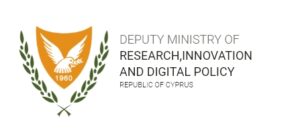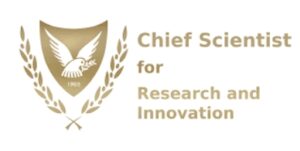
Support for Innovative Companies
Ignite Cyprus is the digital gateway to support and facilitate the extroversion
and growth of the ecosystem through fit-for-purpose incentives for investments in certified
innovative companies.
Strategy for Attracting Business & Talent in Cyprus
The Council of Ministers approved the “Strategy for Attracting Businesses for Activities or/and Expansion of their Activities in Cyprus”. The Strategy is a very important initiative towards attracting both international investments and talent. It includes a series of actions and reforms in several areas of intervention, aiming to enhance Cyprus position as an international high-growth business centre.
Business Facilitation Unit (BFU)
The “Business Facilitation Unit (BFU)” is the single point of contact for foreign companies wishing to commence or expand their operations in Cyprus. The purpose of the new unit will be the fast and efficient processing of such requests.
Investment Tax Incentive
Tax incentive for investment in Innovative SMEs.Tax deduction up to 50% of the investor’s taxable income in the year in which the investment is made, as calculated before allowing for this deduction but after allowing deductions for life insurance premiums and contributions to provident and other approved funds. The total deductible amount may not exceed EUR 150,000 per year.
Scientific Visa
Cyprus welcomes Third Country Nationals to come and work as researchers and this is facilitated by the provision of a special visa / Temporary Residence Permit.
Startup Visa
The “Cyprus Startup Visa” Scheme allows talented entrepreneurs from third countries [outside the European Union (EU) and outside the European Economic Area (EEA)], individuals or a team, to enter, reside and work in Cyprus in order to establish/operate/develop a Startup with high growth potential.
Certified Innovative Companies
The Certificate is an enabler for tax incentives available to natural persons investing in an innovative small and medium-sized enterprise (SME) either directly or indirectly through an investment fund or through an alternative trading platform for venture capital investment.
Certified Innovative Enterprises






Contact Us
Please fill out the form below to contact us. We carefully review each submission and reply as quickly as possible. Thank you for taking time to contact us.
FAQs
Eligible are individual investors who are independent from the enterprise. An investor is deemed to be independent, if he/she is not an existing shareholder of the enterprise, unless he/she was one of the founders of the enterprise upon its establishment. Individuals can carry out their investment either directly or indirectly through an investment fund or through an alternative trading platform for venture capital investment in an innovative small and medium-sized enterprise (SME).
The incentive is provided for risk-finance investments.
‘Risk finance investment’ means equity and quasi-equity investments, loans including leases, guarantees or a mix thereof, to eligible undertakings for the purposes of making new investments and also includes follow-on investments.
For the purposes of defining risk finance investments the following definitions are provided by the law:
- “equity investment” means the provision of capital to an undertaking, invested directly or indirectly in return for the ownership of a corresponding share of that undertaking;
- “quasi-equity investment” means a type of financing whose return for the holder is predominantly based on the profits or losses of the target enterprise and which are unsecured in the event of default (e.g. hybrid loans, debt convertible into equity etc.)
- “loan” means an agreement which obliges the lender to make available to the borrower an agreed amount of money for an agreed period of time and under which the borrower is obliged to repay the amount within the agreed period. It may take the form of a loan or another funding instrument including a lease. The refinancing of existing loans shall not be an eligible loan.
- “follow-on investment” means additional risk finance investment in a company subsequent to one or more previous risk finance investment rounds;
There are special conditions applicable in respect of follow-on investments made in eligible undertakings, including investments made after the 7-year period outlined above in accordance to which, follow-on investments may be eligible if the following cumulative conditions are fulfilled:
- The total amount of risk finance mentioned in paragraph 9 of Article 21 of Regulation (EU) no. 651/2014, is not exceeded;
- The possibility of follow-on investments was foreseen in the original business plan;
- The business which receives follow-on investments is not linked to another undertaking other than the financial intermediary or the independent private investor who provide risk finance under the measure, unless the new entity fulfils the conditions of the SME definition. “Investing venture capital” means investment in equity and quasi-equity loans, including leasing, guarantees or a combination thereof, to eligible enterprises to make new investments.
According to the new provisions of Article 9A of the Income Tax Law, “qualifying investor” which makes a “risk-finance investment” in an “innovative small and medium-sized enterprise (SME)” may deduct the costs of the investment from his/her taxable income, subject to the following limitations:
- Percentage Limit: The tax deduction is limited to 50% of the investor’s taxable income in the year in which the investment is made, as calculated before allowing for this deduction but after allowing deductions for life insurance premiums and contributions to provident and other approved funds (as per Article 14 of the ITL).
- Annual Limit: The total deductible amount may not exceed EUR 150,000 per year.
- Carryforward: The remaining investment cost not claimed as tax deductible may be carried forward and deducted from the taxable income of the subsequent five years, subject to the aforementioned restrictions.
Examples
(I) Independent Investor, whose annual taxable income is shown below, invests in an innovative enterprise the amount of € 400.000 in year 2017.
The tax benefit is presented below:
Tax Year | 2017 | 2018 | 2019 |
€ | € | € | |
Annual Taxable Income | 500.000 | 400.000 | 300.000 |
Discount for investment, lower than: |
| ||
· 50% of annual income tax 2017 – €250.000 2018 – €200.000 2019 – €150.000 | (150.000) | (150.000) | (100.000) |
· Maximum Yearly Discount €150.000 | |||
Annual Taxable Income subject to tax | 350.000 | 250.000 | 200.000 |
Remaining investment amount (transferred for 5 years): |
| ||
2017 – €400.000 – €150.000 | 250.000 |
| |
2018 – €250.000 – €150.000 | 100.000 |
| |
2019 – €100.000 – €100.000 | 0 |
(IΙ) Independent Investor, whose annual taxable income is shown below, invests in an innovative enterprise the amount of € 100.000 in year 2017.
The tax benefit is presented below:
A small and medium-sized enterprise (SME) qualifies as ‘innovative SME’ if:
- Its operations are carried out in the Republic of Cyprus and
- It has a business plan for its risk finance investment and fulfils at least one of the following conditions:
- It does not operate in any market; or
- It has not been operating in any market for more than 7 years (this restriction does not, under certain conditions, apply for follow-on investments) following their first commercial sale; or
- It requires an initial risk finance investment which, based on a business plan prepared in view of entering a new product or geographical market, is higher than 50% of their average annual turnover in the preceding 5 years.
The classification of an SME as ‘innovative’ is being evaluated, as follows: Category A: Existing businesses, with financial history The company submits a Certificate from an External Auditor, certifying that the research and development costs represent at least 10% of its total operating costs.This Certificate must be in accordance with the audited financial statements of the company, which proves the costs for research and development in at least one (1) of the three (3) previous tax years. The categories of expenditure on research and development in the financial statements must be clearly defined. A draft Certificate of External Audit is attached as Annex 2. Category B: Startups, without financial history The company submits a Business Plan in English, describing the ability to develop new or clearly improved products, services or processes with high technological or industrial risk, which are characterized as innovative in their field / market. Guidelines for the preparation of the business plan are attached as Annex 3. Category C: Businesses that meet at least one of the following criteria over the last three years Businesses that prove that they meet at least one of the following criteria over the last three years, and submit proof for it, will receive a certificate without the need of evaluation:
- The company has secured funding from the SME Instrument (Phase I and / or Phase II), the EIC Pathfinder or the EIC Accelerator programmes of the Horizon 2020 EU Framework Programme, or from the EIC Pathfinder or the EIC Accelerator programmes of the Horizon Europe 2021-27 EU Framework Programme.
- The company has received a Seal of Excellence Seal from the Programs listed above.
- The company has secured funding from the Research and Innovation Foundation’s (RIF) PRE-SEED, SEED or INNOVATE Innovation Programs and other corresponding Innovation Programs that will be announced under RIF’s National Research and Innovation Framework Programs.
- The company has secured a Startup Visa.
Other provisions:
- A business will automatically cease to be considered an innovative SME if at any time, the total amount of risk finance exceeds EUR15 million (Commission Regulation (EU) No.651/2014 of 17 June 2014).
- The innovative SME should not be listed on the Cyprus or any other Stock Exchange.
Innovative companies can be exercised not only by legal but also by natural persons (as private enterprises), or partnerships.
Reference to the state aid rules may provide for the exclusion of the business as an innovative SME.
To acquire a certificate as an innovative SME, the company must submit an application (Annex 1) to the Deputy Ministry of Research, Innovation and Digital Policy via email ([email protected]).
The Deputy Ministry of Research, Innovation and Digital Policy evaluates the application in the following ways:
Category A: Existing businesses, with financial history
Examination of the Certificate of External Auditors submitted, stating that the company has invested more than 10% of its operating expenses in research and development. If this criterion applies, then the company is considered eligible for a certificate.
It is emphasized that the company and the external auditor are accountable for the accuracy of the information submitted.
Category B: Startups, without financial history The Business Plan is evaluated by two independent evaluators based on specific criteria (a relevant document is attached as Annex 4). • In case the Business Plan secures a score of ≥ 11/15 from both evaluators, then the company is considered eligible for the issuance of a certificate. • In case the Business Plan secures a score of ≥ 11/15 by only one evaluator, then the Business Plan is evaluated by a third evaluator. If a score of ≥11/15 is secured by the third evaluator, then the business is considered eligible for certification.
Category C: Businesses that meet at least one of the following criteria over the last three years
After examining and confirming the proof submitted, the company is considered eligible for the issuance of a certificate.
Approval or Rejection of an application
The Deputy Ministry of Research, Innovation and Digital Policy approves or rejects the classification of the business as an innovative small and medium-sized enterprise (SME) within one month of receiving a completed application.
The Deputy Ministry reserves the right to ask the legal representative of the company to provide further clarification / information / explanations about the company.
In order to renew the Innovative Business Certificate, the company submits a Certificate from an External Auditor, which certifies that research and development costs account for at least 10% of its operating expenses in at least one of the previous 3 tax years.
This tax incentive takes effect from 1 January 2017. This means that any investment, as described in paragraph 3 above, being made to an innovative company after 1 January 2017 and before 30 June 2021 should be declared by the natural person who made the investment in his Income Tax Statement in that year.
In case the investment is made through an approved investment fund, then the shares are considered to have been issued on the date on which the fund closes.
The rules provide for exclusion clauses that may restrict the deductibility of the expense if:
(i) the investor does not maintain the investment for a minimum period of 3 years; or
(ii) the tax authorities consider that actions have taken place that exceed the maximum ceilings set by the rules.
The Deputy Ministry of Research, Innovation and Digital Policy will issue a certificate valid for three (3) years to any enterprise that meets the criteria to be characterized as innovative.
The Deputy Ministry of Research, Innovation and Digital Policy will also maintain a Register of all relevant innovative enterprises.
Further to this practical note investors and interested enterprises are advised to also consult:
- The text of the Cyprus Income Tax Law as amended
- The Circulars and/or Regulations that may be issued by the Ministry of Finance with regard to the approval procedure
- Commission Regulation (EU) No. 651/2014 of 17 June 2014 declaring certain categories of aid compatible with the internal market in application of Articles 107 and 108 of the TFEU.
For more information, please contact:
Ms. Elena Poulli, Scientific Officer A’
Deputy Ministry of Research, Innovation and Digital Policy
Email: [email protected]
Tel.: 22 691921
2025. All rights reserved.
Terms of use & Privacy Policy
Web Design & Development by Tabs and Spaces



